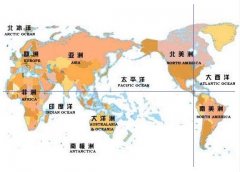What is organic coffee beans Organic Coffee organic coffee

In many parts of the world, growers use pesticides to control the growth of coffee pests, often at high altitudes where wet, foggy coffee is more susceptible to fungi, so growers often use pesticides. Many people think coffee can be called organic as long as synthetic pesticides, herbicides, and chemical fertilizers are not used during its growth. In fact, coffee can only be called organic if it is certified by a third party (other than the coffee maker and buyer).
Organic Coffee Certified Organic Coffee is authorized by a third party organization. It is grown without chemical raw materials, pesticides, herbicides and artificial food additives during the growth process of coffee trees. It must meet organic conditions from soil water quality testing, planting, cultivation, harvesting and production. The process is strictly controlled. It is a high-quality coffee produced in harmony with nature. It has great benefits for health and environmental protection.
Only a small percentage of the world's coffee is certified organic in the true sense of the word, because the certification process takes a considerable amount of time, about three years. And how much of a 50% drop in coffee production would such a trade cause. So when coffee growers decide to go organic, it means a time-consuming and costly investment.
Organic Coffee Features:
Organic coffee is grown without pesticides and other chemicals to treat pests or cultivation problems. Natural methods such as composting, fencing, pruning, etc. are used to maintain the growth of the coffee tree. Pure natural biological control methods such as planting protective trees and other natural farming techniques are used to ensure the health of the coffee tree. Because the sustainability of land, water and the natural environment is an active concern of the organic coffee industry. Organic high-quality coffee is the essence of heaven, earth, people-weather, soil, love masterpiece, a coffee tree needs to grow for five years to blossom, a pound of coffee needs about 4000 coffee beans, completely manually harvested, and each coffee tree harvested each year is only enough to produce a pound of roasted coffee beans, the rare is expensive.
Reasons to choose organic coffee beans:
1. Protect the next generation: reduce exposure to carcinogenic chemicals such as pesticides and herbicides.
2. Prevention of soil depletion: The Soil Conservation Society estimates that soil loss is seven times greater than recovery since chemicals began to destroy soil-nourishing plants.
3. Energy conservation: Modern farming is more suitable for petroleum artificial fertilizer planting and harvesting crops.
4. Say no to chemicals:EPA has identified 60% of herbicides, 90% of fungicides and 30% of pesticides as carcinogens. These substances are carcinogenic and cause infant deformities.
5. Protecting farmers: Protecting farmers 'health is also a social responsibility. We must reduce farmers 'exposure to chemicals. In the third world, the safety of pesticide use is less valued and gradually becomes a serious problem.
6. Preserving water quality: organic farms will preserve quality water for the next generation. Love our land, love our earth! If you love coffee, drink organic coffee.
(This article is reproduced)
Important Notice :
前街咖啡 FrontStreet Coffee has moved to new addredd:
FrontStreet Coffee Address: 315,Donghua East Road,GuangZhou
Tel:020 38364473
- Prev

Honduran boutique coffee common sense selected Highland Coffee
Honduras: special highland coffee flavor and taste characteristics: good flavor, rich and mellow, suitable for mixed drinking. Honduras is located in the north of Central America, facing the Caribbean Sea to the north, the Gulf of Fonseca in the Pacific Ocean to the south, Nicaragua and El Salvador to the east and south, and Guatemala to the west, mostly mountains and plateaus. It has a tropical climate, mild temperature, abundant rainfall, and is a coffee producer.
- Next

Boutique Robeste beans Bali garden beans
Although Balinese coffee is a member of Indonesian coffee, coffee farmers in Bali feel that the quality of Indonesian coffee is uneven and does not match the high-quality coffee quality of Bali, so they set up their own doors and call themselves Balinese coffee to show the difference between Indonesian coffee and Indonesian coffee. There are not only Arabica coffee beans but also Robbins coffee in Bali. The protagonist of this article is
Related
- Guji coffee producing area of Guji, Ethiopia: Humbela, Shakiso, Wulaga
- What is the most expensive variety of Qiloso in BOP multi-variety group?
- How to store the coffee beans bought home?
- Why are Yemeni coffee beans so rare now?
- Ethiopian Sidamo all Red Fruit Sun Sun Santa Vini Coffee beans
- SOE is mostly sour? What does it mean? Is it a single bean? what's the difference between it and Italian blending?
- Is Italian coffee beans suitable for making hand-brewed coffee?
- How to choose coffee beans when making cold coffee? What kind of coffee beans are suitable for making cold coffee?
- Just entered the pit to make coffee, what kind of coffee beans should be chosen?
- Can only Japan buy real Blue Mountain Coffee? What are authentic Jamaican Blue Mountain coffee beans?

